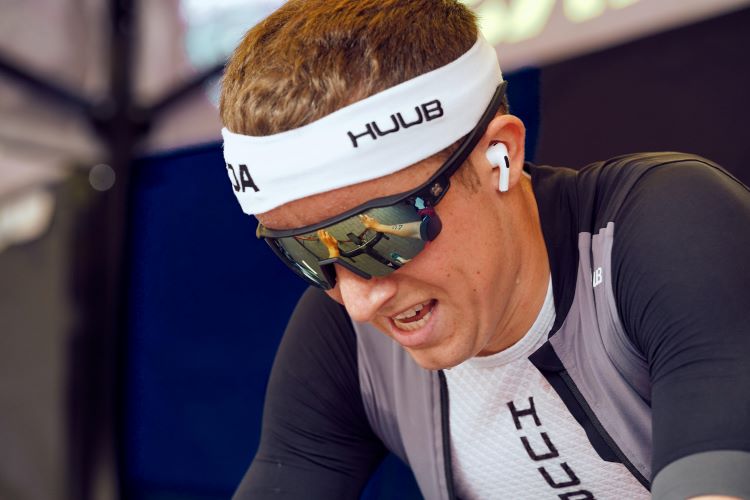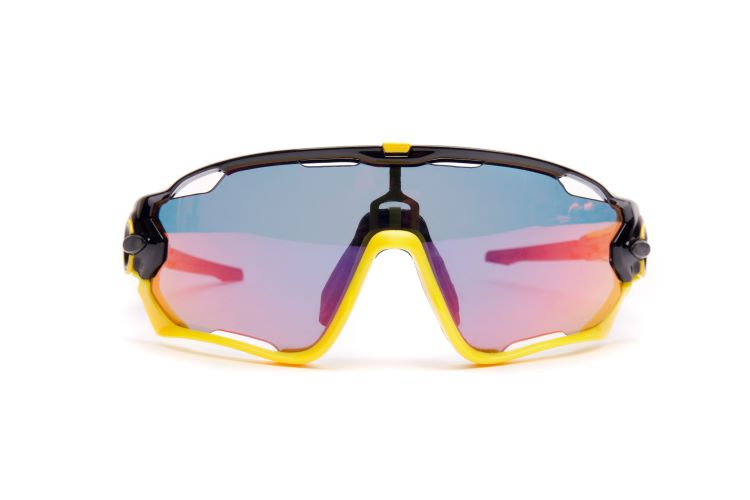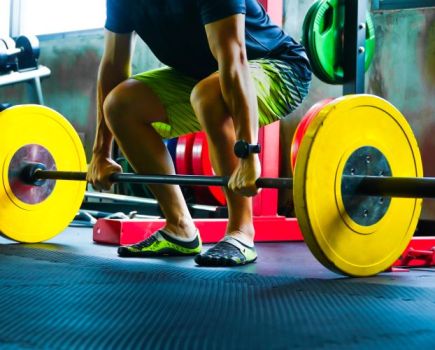They may look the same but there can be subtle difference between running glasses and cycling glasses. We take a closer look at what you need and why.
If you enjoy exercising in the great outdoors, you’ll know your experience can be greatly enhanced by wearing a pair of running glasses or the best cycling glasses. They minimise glare, increase contrast and protect your eyes from bugs, debris and ultraviolet rays.
But does in matter which type you wear, depending on the exercise you’re doing? Most glasses manufacturers will differentiate between the designs of running and cycling glasses, because the needs of runners and riders are actually quite different.
Now you may be forgiven for thinking this is just a cynical ploy by the sportwear industry to maximise sales. Surely all glasses need to do is make you look cool and turn the sun down a bit? But runners and riders themselves will tell you they need slightly different things from their sports specs.
And triathletes need to find glasses that can cope with the rigours of both sports. Dan Dixon, one of Super League Triathlon’s up-and-coming talents and a British senior and junior champion, says: “Glasses are one of the coolest things you can kit yourself out with as a triathlete, but choosing the right pair matters.

“Triathlon pushes the use of glasses, with riding requiring more vision throughout the frame and ventilation when sweating lots. Meanwhile running is all about lightness and ease of use.
“My pair of choice are the Sungod Ultras, boasting plenty of vision, ventilation and of course lightness for all-day use no matter the sport.”
Try the Sungod Ultra glasses
BUY IT NOW:
$180 / £150, sungod.co
Differences between running glasses and cycling glasses
There are subtle differences between the sports that can influence respective glasses design. The regular impact and bounce of running means you need glasses with a closer fit than riding glasses. Interchangeable nose pieces and grippy arm socks can help you dial in a face-hugging fit so your shades stay locked in place, whatever terrain you’re running on. Weight is more of a concern with running glasses too.
That’s not to say cycling glasses won’t feature the ability to fine-tune fit. And that may be particularly desirable if you’re a downhill mountain biker, for example. However, cycling glasses tend to have a more universal shape and an arm design that allows them to be slotted into helmet vents when not in use.
Wear the Endura Shumba II glasses for running or riding
BUY IT NOW:
SQUIRREL_TEXT_12924844
Both running and cycling glasses need to be well vented or include an anti-fogging treatment to stop them misting up. But they need to do so in slightly different ways. When you’re running to tend to generate more heat and perspiration than when you cycle. (And the very act of cycling tends to give you plenty of ventilation.)
So running glasses tend to require more generous ventilation. However, cycling glasses often feature vents that are lower down or have gaps between the lenses and your cheekbones. That’s because cycling helmets tend to limit the amount ventilation at the top of the glasses.
Another big difference is coverage. While many sports glasses have embraced the universal wraparound design, you’ll often find this more prevalent on cycling glasses, because of the need for good peripheral vision.
Similarities between running glasses and cycling glasses
Whatever glasses you go for, there are a number of factors that are worth considering. You’ll want a quality set of lenses that’ll protect your eyes from bright sunshine and glare off roads and reflective surfaces, which all help to reduce eye strain.
Consider polarised lenses for coping with quick transitions from light to shade and for improving contrast. These are particularly useful when cycling at speed through dappled shade. Using polarised glasses for off-road running in rapidly changing light will help you pick out obstacles on the trail too.
And whether you’re running or riding, it’s worthwhile choosing glasses with good UVA/UVB protection – to protect your eyes from damaging ultraviolet radiation.
Related content:






